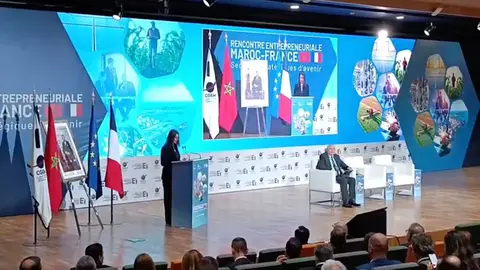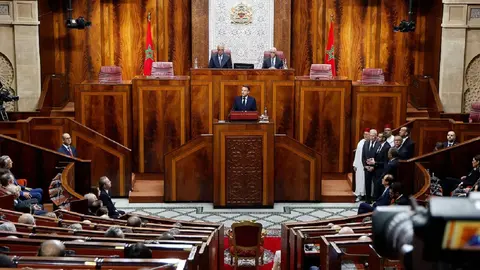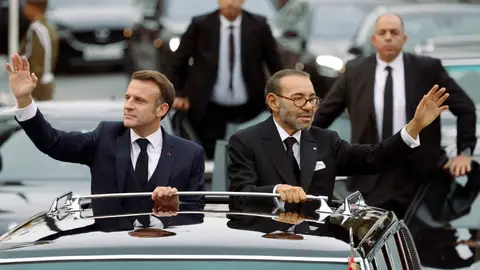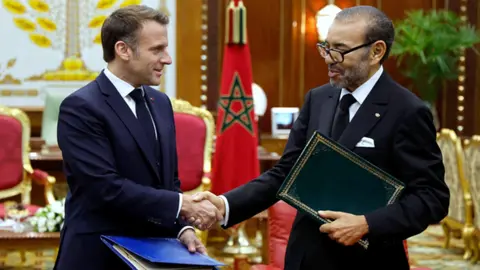Macron promises to maintain French investments in Western Sahara
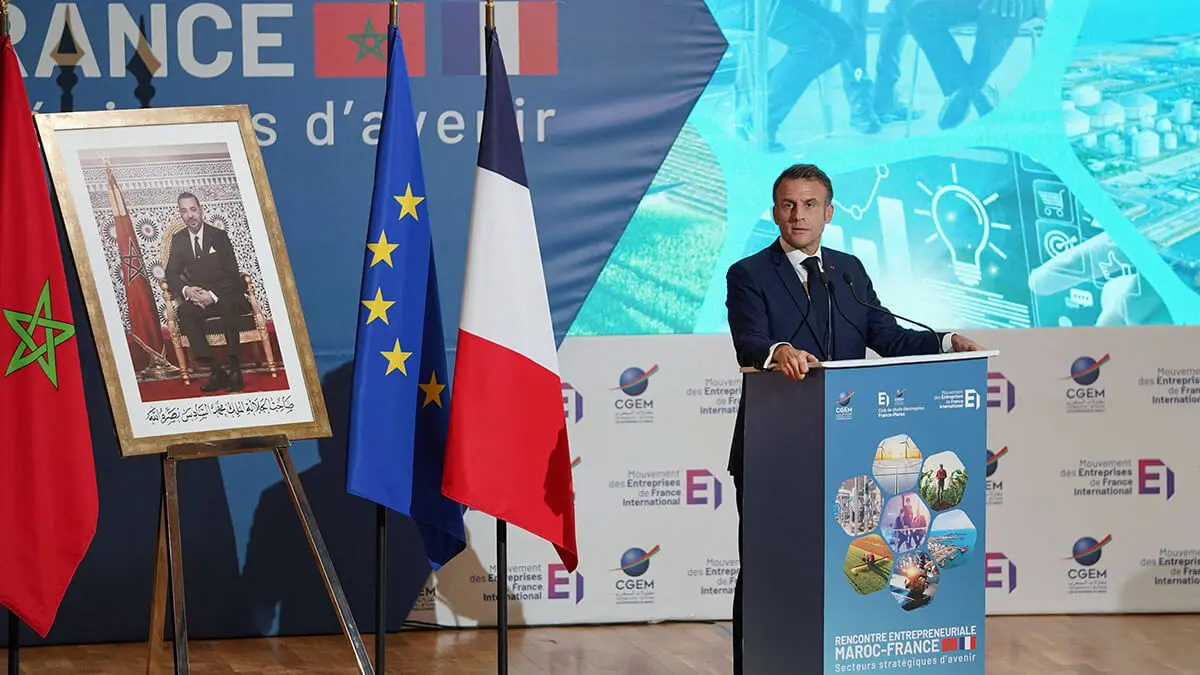
The President of France, Emmanuel Macron, has travelled to Morocco with the aim of strengthening bilateral ties in various fields, including investment and trade. To this end, the employers' associations of the two countries, CGEM on the Moroccan side and MEDEF on the French side, met in Rabat on the sidelines of the presidential visit under the theme “Morocco-France: strategic sectors of the future”.
This meeting was attended by senior officials and chairmen of the largest companies of both countries. More than 1,000 French companies are present in Morocco, Paris's leading economic partner in the region.
During his address to businessmen from both countries, Macron stressed that the French Development Agency (AFD) will continue to finance projects in the Kingdom, including those carried out by French companies in Western Sahara. ‘The Moroccan Sahara must be an investment area for French companies’, Macron stressed, who considered that “the choice of certain companies to leave the African continent in recent years was a mistake”.
That is why France intends to develop an equitable and beneficial economic partnership with Morocco, promoting greater integration of value chains in a context of ‘regionalisation of tariffs’.
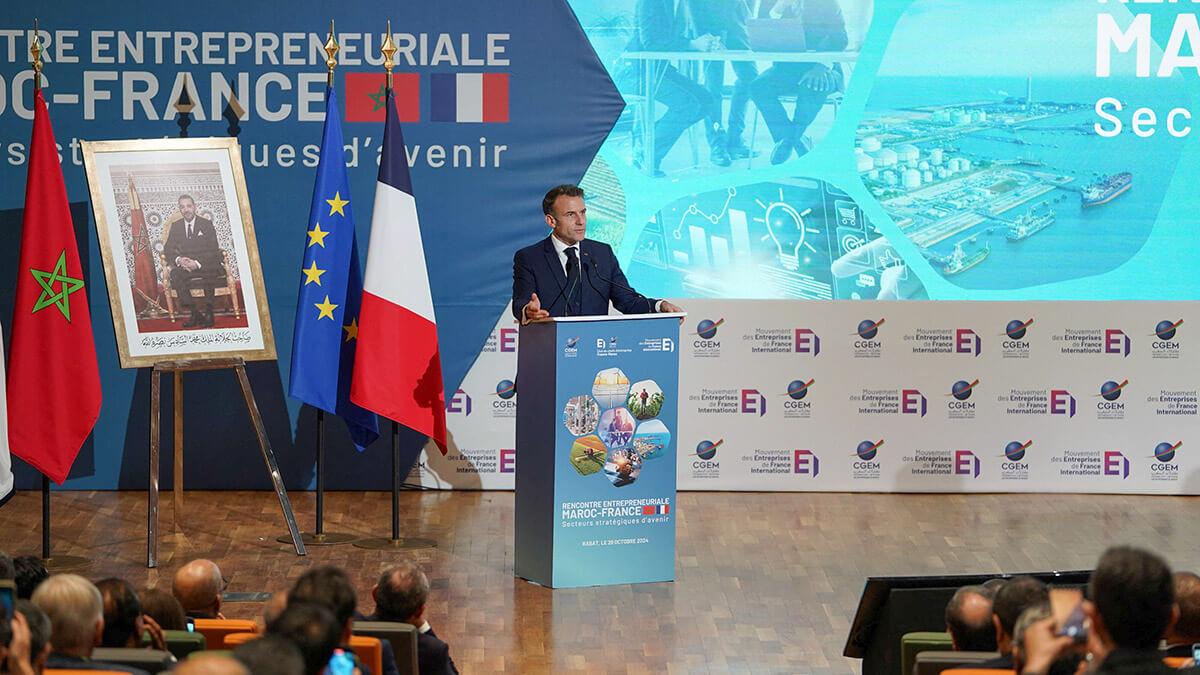
‘In the future we will have to continue to do more together and develop the integration of our value chains and technological and industrial partnership,’ Macron explained. During this visit, the French leader drew up a joint roadmap with the Moroccan king, Mohammed VI, for the coming years which, according to Macron, will allow both countries to ‘open a new phase in the relationship for at least the next 25 years’.
In addition to investment and business relations, Macron also referred to food and energy sovereignty. ‘The experience we have lived through with the war in Ukraine and the consequences of the sanctions shows that if we want true food sovereignty, in France as in Morocco, in Europe as in Africa, we must strengthen the partnership,’ the French president said, assuring that there is “much to build” in this area.
With regard to energy, the French leader praised Morocco's ‘unprecedented strategy’ in this field. ‘Morocco has developed a solid hydroelectric strategy, which it has backed up with solar and wind energy initiatives. Today, Morocco has a unique capacity to produce green and decarbonised hydrogen, as well as a remarkable capacity to generate carbon-free electricity,’ he said.
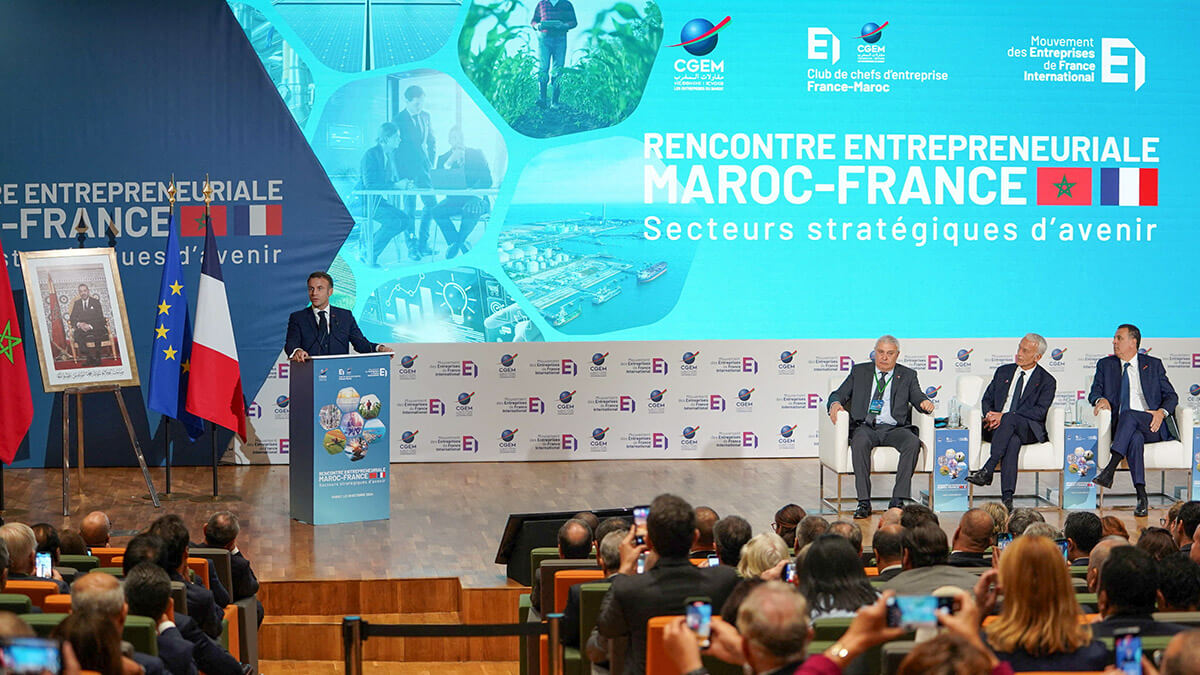
Furthermore, addressing Moroccan and French companies and a delegation from the governments of Rabat and Paris, Macron expressed his desire to ‘be true partners in the water and irrigation sector’. ‘I also believe that these projects are a source of inspiration for the African continent and represent an opportunity for collaborative technological development between the main economic players,’ he added.
Praising Moroccan creativity and talent, Macron also stressed that ‘the two countries have a long tradition of talent exchange, and Rabat is second only to Lebanon in terms of the largest French education network outside France.’
In conclusion, the French President underlined the depth of bilateral relations, recalling the ‘exceptional links between universities and business schools, such as Sciences Po, a university that represents this link between the two shores’.
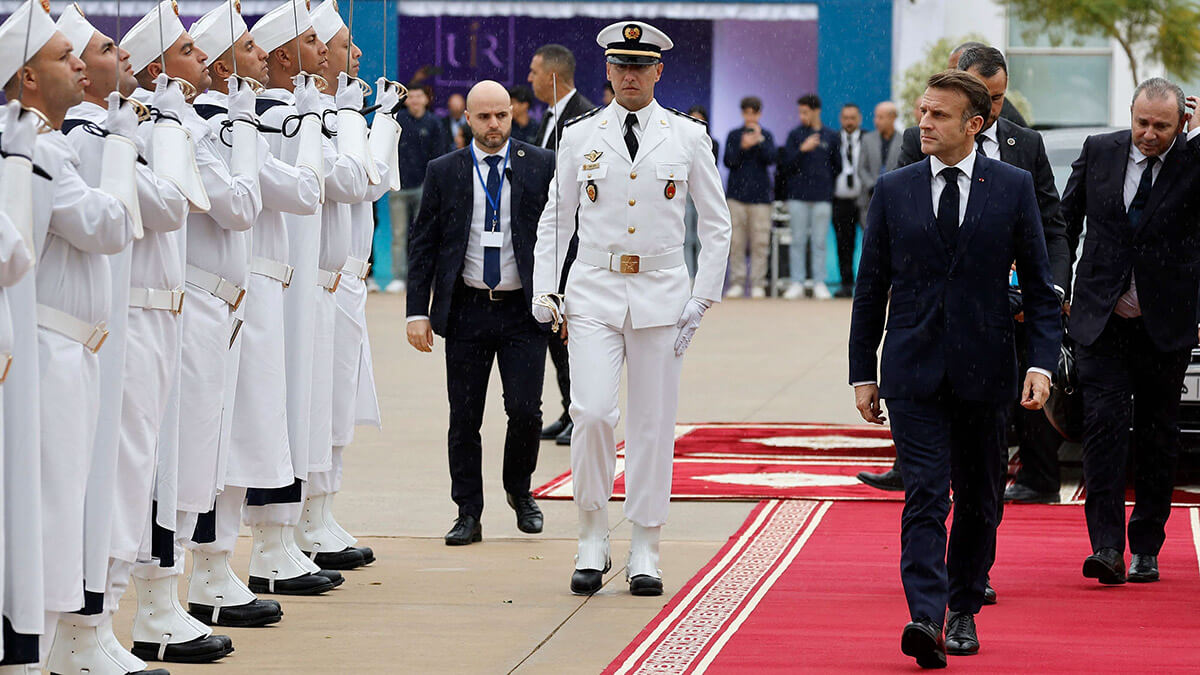
During Macron's official trip to Morocco, Rabat and Paris signed 22 agreements and protocols in different vital sectors, consolidating the partnership between the two nations. These agreements include a pact between ONCF and ALSTOM on the supply of high-speed trains, a memorandum between the OCP Group and the French Development Agency (AFD) for 350 million euros in the field of decarbonisation or an agreement between the Government of the Kingdom of Morocco and the SAFRAN Company for the creation of a site for the maintenance and repair of aircraft engines with an investment amount of almost 130 million euros.
Partnerships have also been strengthened in the fields of energy, water, culture, education and the environment.
In addition, during his trip, Macron reaffirmed France's support for Morocco's sovereignty over Western Sahara. At the end of July, the French head of state officially expressed Paris' support for the proposal of autonomy under Moroccan sovereignty for the region as the best option for resolving the conflict. In this sense, France officially recognised that ‘the present and the future of the Sahara fall within the framework of Moroccan sovereignty’.

